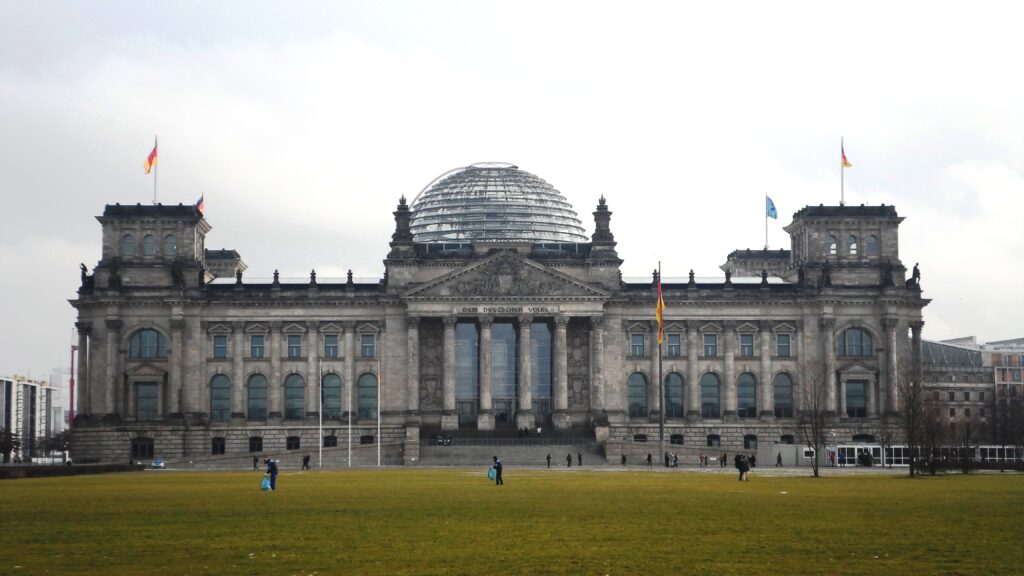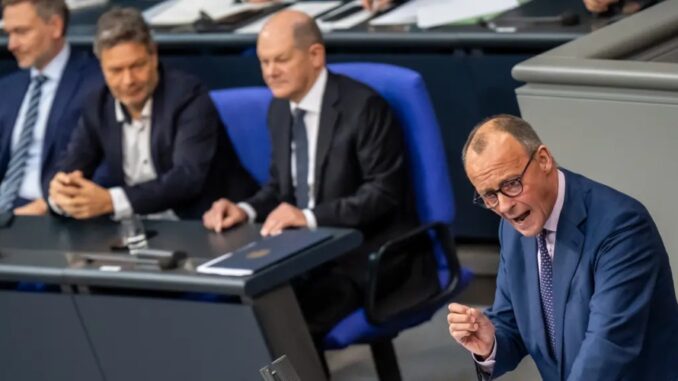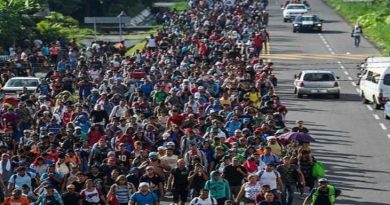Germany: The right and the extreme right rise in the partial repetition of the federal elections in Berlin
The German capital has not survived its third elections in four years immune. Although broadly speaking the Bundestag does not alter its composition, only reduced by one deputy, The results show a defeat for the traffic light government. All opposition parties in the Bundestag, from the CDU, the AfD even the Left made progress, while two of the traffic light coalition partners suffered significant losses. The SPD fell 7,8 percentage points and the general secretary of the FDP must leave his position in Parliament.
ByCarolina Menendez Trucco
In a context of growing mobilization and massive marches against the rise of the extreme right, The results in Berlin could be a wake-up call for the government coalition led by the social democrat Olaf Scholz with the support of greens and liberals. The Social Democratic Party of Germany lost (SPD) and the Free Democratic Party (FDP) and the Christian Democratic Union of Germany won (CDU) and the Alternative for Alternative (AfD) in the electoral repetition. A warning sign for Germany's future? The blow in particular for two of the partners of the traffic light coalition, not only does it reveal the discontent with the government and the unrest that drove hundreds of thousands to the streets in recent weeks, also as a preview of the possible results for the right and the extreme right in the next elections at the federal level. The austerity and anti-immigration policy of the Scholz cabinet did nothing but cool the polls, and citizen participation was what ended up defining the game. Due to the low participation of practically the 50%, the state of Berlin lost four mandates and will now only be represented by 25 politicians in the Bundestag.
The third time's the charm. Half a million or one in seven Berliners were once again called to the polls. The capital has been forced to repeat on Sunday 11 the federal elections held two and a half years ago due to a series of irregularities in 455 electoral districts. Long lines, shortage of voting booths and lack of ballots, among other mishaps that caused thousands of people to be unable to exercise their right to vote., led the Federal Constitutional Court to order partial repetition. But not for the first time, Berlin had already repeated the state elections on 12 February 2023, also for irregularities that resulted in a change of mayor and government coalition. In this opportunity, Although it was clear that the board was not going to change too much, since only a fifth of the electoral colleges could suffer an impact, the numbers ended up reflecting reality.

The results
The right and the extreme right are the big winners. The CDU rose 6,9% there is AfD one 5,6%. The social democrats fell 7,8 percentage points, while the liberals lost two thirds of their vote percentage. The FDP parliamentary group also lost a seat in the Bundestag without replacement. The director of the Berlin FDP, Lars Lindemann, He has to resign from his mandate after the new elections. The Greens, the only coalition partner slightly favored by the repetition, arrived at 27,7% improving your results in 0,5%. The Berlin left paradoxically improved 0,1% in the partial repetition of the federal elections of 2021; but since the party obtained fewer votes due to lower citizen participation, Bundestag member Pascal Meiser must resign from the parliamentary seat he won in 2021.
On the other hand, Hessian left-wing politics, Christine Buchholz, won a mandate in the Bundestag; Nevertheless, He did not want to accept it due to his differences with the political line of Die Linke and his parliamentary group.. Jörg Cezanne will take his place in Parliament. An atypical vote. Only parties and candidates that had already participated in the ordinary federal elections of 2021. The newly founded Sahra Wagenknecht Alliance did not even appear on the ballots (BSW) nor the union of values founded by the former head of the Federal Office for the Protection of the Constitution, Hans-Georg Maaßen. But to the alarm tone due to the general results, a worrying fact was added: that MP Birgit Malsack-Winkemann, coup d'état suspect, has run as a candidate for the AfD while in custody and has even been able to improve her result in 2021.
In sum, Berlin's federal mini-elections didn't change the game board much, but they could be a preview of what is to come and without a doubt a reflection of social discontent and fear of a possible change of regime. While there were no changes to the twelve direct Bundestag mandates at stake in the capital and the parliament was reduced by one seat to just 735 members, The rise of extremist parties is unfortunately a fact and was reflected at the polls. The social democratic government together with its partners with their policies of continuous attacks on immigrants and social cuts only strengthens the same line of the CDU and the AfD. For this very reason, The way to combat the feared rise of the right and the extreme right is the fight for a true socialist alternative, strengthening the revolutionary leaderships, just like the mobilizations, as has been clearly demonstrated by the more than one and a half million people resisting in the streets in recent weeks..




